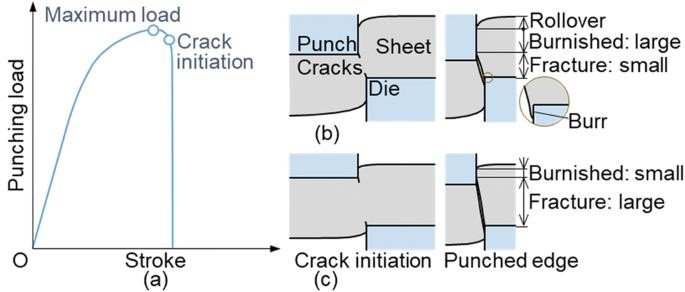Punching the Air⁚ A Novel in Verse
This powerful young adult novel in verse, co-authored by Ibi Zoboi and Yusef Salaam, tells the story of Amal Shahid, a sixteen-year-old artist wrongfully incarcerated. His journey explores themes of racial injustice, resilience, and the transformative power of art within a flawed system.
Synopsis and Main Themes
Punching the Air, a poignant young adult novel written in verse by Ibi Zoboi and Yusef Salaam, follows sixteen-year-old Amal Shahid, a gifted artist and poet. His life takes a devastating turn when he’s wrongly convicted of a violent crime and imprisoned. The narrative unfolds through Amal’s perspective, using powerful verse to convey his internal struggles, anger, and resilience in the face of injustice. Key themes explored include the pervasive nature of racial bias within the American criminal justice system, the suffocating weight of wrongful accusation, and the profound impact of systemic oppression on young Black men. The story also highlights the importance of family support, artistic expression as a form of resistance, and the enduring power of hope and self-belief amidst overwhelming adversity. Amal’s journey showcases the strength of the human spirit to persevere, even when confronted with a system designed to break him. Through his art and poetry, Amal fights to maintain his humanity and reclaim his narrative, challenging readers to confront the systemic inequalities that perpetuate such injustices.
The Wrongful Incarceration of Amal Shahid
Amal Shahid’s wrongful incarceration forms the central conflict driving the narrative of Punching the Air. The novel doesn’t explicitly detail the events leading to his arrest, but it powerfully depicts the devastating aftermath. Amal, a young Black artist, finds himself unjustly accused of a violent crime, a situation fueled by racial biases and flawed perceptions. The narrative emphasizes the systemic inequalities within the justice system, highlighting how easily a young Black man can become a victim of misjudgment and wrongful conviction; The story doesn’t shy away from the emotional toll of imprisonment, exploring Amal’s feelings of anger, betrayal, and despair. His confinement isn’t merely physical; it represents a systematic stripping away of his freedom, dignity, and future prospects. The injustice of his situation fuels his artistic expression, transforming his pain into a powerful testament to the need for reform and a more equitable society. His wrongful conviction serves as a stark illustration of the urgent need to address racial biases and systemic failures within the legal system.
Amal’s Artistic Expression⁚ Poetry and Painting
Within the confines of his unjust imprisonment, Amal Shahid finds solace and resistance through his art. Poetry and painting become his primary means of self-expression, allowing him to process his emotions and experiences. His verses, imbued with raw emotion and poignant imagery, reflect his anger, despair, and resilience. They serve as a powerful testament to his spirit, refusing to be broken by his circumstances. The act of creation itself becomes a form of defiance, a way of reclaiming agency in a situation designed to strip him of it. His paintings, equally expressive, offer visual counterparts to his poetic reflections, adding another layer of depth to his artistic output. The art isn’t merely a coping mechanism; it’s a vital channel for conveying his truth and fighting against the silencing effects of the system that unjustly incarcerated him. Through his art, Amal transcends the limitations of his physical confinement, sharing his experiences and inspiring empathy in others.
The Power of Art as Resistance
In “Punching the Air,” Amal’s artistic expression transcends mere self-expression; it becomes a potent act of resistance against the oppressive forces that have unjustly confined him. His poetry and paintings are not simply creative endeavors; they are weapons wielded against the dehumanizing realities of the prison system and the systemic racism that led to his wrongful conviction. Through his art, Amal reclaims his narrative, refusing to let the system define his identity or silence his voice. Each verse, each brushstroke, is a defiant act, a testament to his unwavering spirit and his refusal to be broken. The creative process itself becomes an act of rebellion, a way to maintain his humanity and dignity in the face of overwhelming adversity. His art serves as a powerful counter-narrative, exposing the injustices he faces and compelling readers to confront the harsh realities of the criminal justice system. It’s a testament to the enduring power of the human spirit and the transformative potential of art in the face of oppression.
Racial Injustice and the Criminal Justice System
“Punching the Air” unflinchingly confronts the pervasive issue of racial injustice within the American criminal justice system. Amal Shahid’s wrongful incarceration serves as a stark illustration of the systemic biases and inequalities that disproportionately affect young Black men. The novel doesn’t shy away from depicting the harsh realities of the juvenile detention center, highlighting the dehumanizing conditions and the constant threat of violence. It exposes the subtle and overt forms of racism that permeate every level of the system, from the initial arrest and prosecution to the sentencing and incarceration. The narrative underscores how easily a young Black man can become a victim of circumstance, trapped in a system designed to fail him. Amal’s story forces readers to confront uncomfortable truths about racial profiling, the presumption of guilt, and the lack of accountability within the system. The novel serves as a powerful indictment of a system that perpetuates cycles of inequality and oppression, leaving lasting scars on individuals and communities alike.
The Role of Family and Support Systems
Amidst the oppressive environment of incarceration, Amal Shahid finds solace and strength in the unwavering support of his family and community. His mother’s steadfast belief in his innocence and her tireless efforts to secure his release provide a crucial lifeline. She embodies the resilience and determination of a mother fighting for her child against a seemingly insurmountable system. Beyond his immediate family, Amal’s supportive network extends to mentors, friends, and fellow inmates who offer encouragement and guidance. This community provides a vital counterbalance to the isolating and dehumanizing aspects of prison life. Their presence underscores the importance of human connection and the power of collective action in challenging injustice. The novel highlights how a strong support system can be a critical factor in maintaining hope and fostering resilience during times of adversity. This emphasizes the significance of community and family in navigating the challenges of the criminal justice system and maintaining one’s identity.
Themes of Identity and Resilience

Central to “Punching the Air” is Amal’s struggle to maintain his sense of self amidst the dehumanizing experience of wrongful incarceration. The novel powerfully explores how the criminal justice system attempts to strip away his identity, reducing him to a number and a label. Yet, Amal’s artistic expression—his poetry and paintings—become crucial tools for self-affirmation and resistance. Through his art, he reclaims his narrative and refuses to be defined solely by the accusations against him. His creative acts serve as a testament to his inner strength and refusal to be broken. The theme of resilience is woven throughout the narrative, showcasing Amal’s unwavering spirit in the face of adversity. He finds strength in his family, his art, and his own inherent capacity for hope. The novel doesn’t shy away from depicting the emotional toll of imprisonment, but it ultimately celebrates the indomitable human spirit and the capacity to persevere even in the darkest of circumstances. Amal’s journey emphasizes the importance of self-belief and the power of creative expression in navigating trauma and maintaining one’s identity.
The Authors⁚ Ibi Zoboi and Yusef Salaam
The collaborative nature of “Punching the Air” is a significant aspect of its power. The novel is a unique partnership between award-winning author Ibi Zoboi, known for her compelling young adult fiction, and Yusef Salaam, a member of the Exonerated Five and a prominent voice in prison reform advocacy. Zoboi’s literary expertise shines through in the novel’s lyrical verse and its nuanced portrayal of complex emotions. Her previous works demonstrate a commitment to addressing social justice issues within the young adult genre, making her a perfect fit for this project. Salaam’s personal experience with wrongful incarceration lends an unparalleled authenticity to the narrative. His perspective informs the novel’s portrayal of the emotional and psychological impact of imprisonment, adding layers of depth and realism often missing from similar stories. The combination of Zoboi’s storytelling prowess and Salaam’s lived experience creates a powerful synergy, resulting in a novel that is both artistically compelling and socially impactful. Their collaboration speaks to the potential for powerful storytelling when creative talent meets lived experience.
Zoboi’s Literary Style and Previous Works
Ibi Zoboi’s distinct literary style is characterized by its vibrant and lyrical prose, particularly evident in her work with verse novels. Her writing often incorporates elements of magical realism and a deep understanding of cultural identity, frequently exploring themes of family, community, and social justice within diverse settings. Before collaborating on “Punching the Air,” Zoboi established herself as a prominent voice in young adult literature. Her previous novels demonstrate a consistent engagement with complex social issues, often focusing on the experiences of marginalized communities. This dedication to social commentary is a key element of her work, enriching her storytelling and giving her narratives significant depth and resonance. Examples of her notable works include “American Street,” a National Book Award finalist that explores the immigrant experience, showcasing her ability to weave intricate narratives with powerful emotional impact. Her stylistic choices, whether it’s the use of verse or her detailed character development, consistently serve to amplify the voices and perspectives often overlooked in mainstream literature. This skill is integral to the success of “Punching the Air,” where her style effectively complements the novel’s powerful message.
Salaam’s Activism and Personal Experience
Yusef Salaam’s profound influence on “Punching the Air” stems not only from his co-authorship but also from his lived experience and unwavering activism. As one of the Exonerated Five, wrongly convicted in the infamous Central Park Five case, Salaam possesses a unique perspective on the injustices within the criminal justice system. His personal journey, marked by wrongful imprisonment and subsequent exoneration, fuels his passionate advocacy for prison reform and social justice. This firsthand understanding of the systemic biases and harsh realities faced by young people of color within the legal system is deeply interwoven into the narrative of “Punching the Air.” Salaam’s activism extends beyond his personal story; he actively works to raise awareness about the disproportionate incarceration rates of marginalized communities and advocates for policies that promote fairness and equity within the justice system. His commitment to social change informs the powerful message at the heart of the novel, adding layers of authenticity and urgency to Amal’s story. The collaboration between Zoboi and Salaam allows for a unique blend of literary skill and lived experience, creating a compelling and impactful narrative. His voice ensures the novel resonates with a profound understanding of the issues it addresses.
Critical Reception and Awards
“Punching the Air” has garnered significant critical acclaim since its release, praised for its powerful storytelling, lyrical prose, and impactful exploration of crucial social issues. Reviewers have lauded the novel’s ability to capture the emotional weight of wrongful incarceration and the resilience of the human spirit in the face of adversity. The verse format has been highlighted as a particularly effective choice, allowing for both emotional intensity and a rhythmic flow that mirrors the experience of being trapped within the system. The book’s exploration of themes of race, justice, and the power of art has resonated deeply with readers and critics alike. The collaboration between Ibi Zoboi and Yusef Salaam has also been cited as a key element of the novel’s success, bringing together distinct creative voices to create a compelling and nuanced narrative. While specific award details weren’t readily available from the provided text, the novel’s widespread positive reception and numerous mentions as a powerful and important work suggest it has likely received significant recognition within the young adult literature community. Its inclusion on numerous “best of” lists and its continued popularity point towards its lasting impact on readers and the literary landscape.

Availability and Formats (Print, eBook, Audiobook)
“Punching the Air” enjoys widespread availability across various formats, catering to diverse reader preferences. The novel is readily accessible in print, offering a traditional reading experience valued for its tactile quality and permanence. For those preferring digital formats, an eBook version is available, providing convenient access on a range of electronic devices, including e-readers, tablets, and smartphones. This digital format often includes added features like adjustable font sizes and built-in dictionaries. Furthermore, an audiobook version enhances accessibility for listeners, bringing the story to life through the voices of skilled narrators. This audio format is particularly beneficial for individuals who prefer auditory learning or may have visual impairments. The availability across print, eBook, and audiobook formats ensures broad reach, allowing a wider audience to engage with the powerful narrative and themes presented in “Punching the Air.” Specific retailers and online platforms offering these versions can easily be found through online booksellers and library databases. The diverse format options underscore the novel’s commitment to inclusivity and accessibility for readers of all backgrounds and preferences.
Educational Applications and Discussion Points
Punching the Air offers rich opportunities for classroom discussions and educational applications. Its verse format makes it accessible while tackling complex themes. The novel’s exploration of racial injustice within the criminal justice system prompts critical analysis of systemic biases and inequalities. Students can explore Amal’s artistic expression as a form of resistance and self-discovery, prompting conversations about the power of art in social justice movements. The text facilitates discussions on themes of identity, resilience, and the importance of community support systems. Teachers can use the novel to explore literary devices like imagery and metaphor, enhancing students’ comprehension and critical reading skills. Furthermore, the novel’s realistic portrayal of a young Black man’s experience within the justice system provides a powerful platform for examining social justice issues, encouraging empathy and fostering critical thinking about societal structures and their impact on marginalized communities. The story inspires research into related topics, including prison reform and the disproportionate incarceration rates of minority youth. Ultimately, Punching the Air serves as a catalyst for meaningful discussions, critical analysis, and a deeper understanding of complex social issues.

